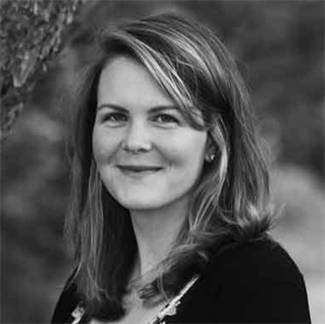By: Cynthia Macdonald
23 Jan, 2019

In an age rife with stories of cyberbullying, hate crime, rude politicians and physical violence, it’s certainly worth asking how we as individuals can do better. A new initiative started by two psychologists at Boston College seeks to find a scientific answer to that question.
 The Virtue Project will explore the behavioural roots of time-honoured concepts such as fairness, charity, loyalty, justice and forgiveness. Co-founders Katherine McAuliffe (a CIFAR Azrieli Global Scholar) and Liane Young come to this work naturally: they already run labs devoted, respectively, to studying cooperation and morality.
The Virtue Project will explore the behavioural roots of time-honoured concepts such as fairness, charity, loyalty, justice and forgiveness. Co-founders Katherine McAuliffe (a CIFAR Azrieli Global Scholar) and Liane Young come to this work naturally: they already run labs devoted, respectively, to studying cooperation and morality.
“Virtue is usually studied within the domains of theology and philosophy, so it’s quite exciting to work on it from a psychological perspective,” says McAuliffe. Much of her research to date has examined how children learn and conform to norms about fairness, and how they encourage others to follow these norms.
“A big part of my work has been cross-cultural,” she adds. “We want to look at how these virtues develop across different societies.”
Like many other social scientists, McAuliffe believes that too much of what we know about human psychology and child development comes from studies of what are now known as WEIRD populations: western, educated, industrialized, rich and democratic. One attempt to expand this scope was a well-known study she co-authored in 2015. It examined the development of fairness in children living in seven countries (Canada, India, Mexico, Peru, Senegal, Uganda and the United States), and found marked differences in cultural norms, with one global observation: children emphatically don’t like getting less of a good thing than others do.
McAuliffe has also observed that non-human animals, too, measure what they’re getting against what others are getting – which may resemble “fairness,” but has little to do with virtue. Her work to date has shown that only humans possess the trait in its authentic form. “True fairness,” she says, “involves getting upset when you get more than someone else.”
At the end of the day, we want to design systems that really promote good behaviour. We want to help people do the thing they know is right.
In addition to studying children, adults and animals, McAuliffe and Young want their research to be as interdisciplinary as possible. To this end their team will welcome input not only from other psychologists, but from economists, anthropologists, philosophers, and historians too.
“Expanding the scope of inquiry into virtue is our major goal,” McAuliffe says. “I think looking at it from different perspectives – even, perhaps, at its biological foundations – is something new.”
Learning how virtue develops will also provide ideas about how it can be sustained. McAuliffe’s research has already shown that although children learn right from wrong quite early in life, they still have trouble being fair. That’s something she and Young would like to help change.
“At the end of the day, we want to design systems that really promote good behaviour,” she says. “We want to help people do the thing they know is right.”